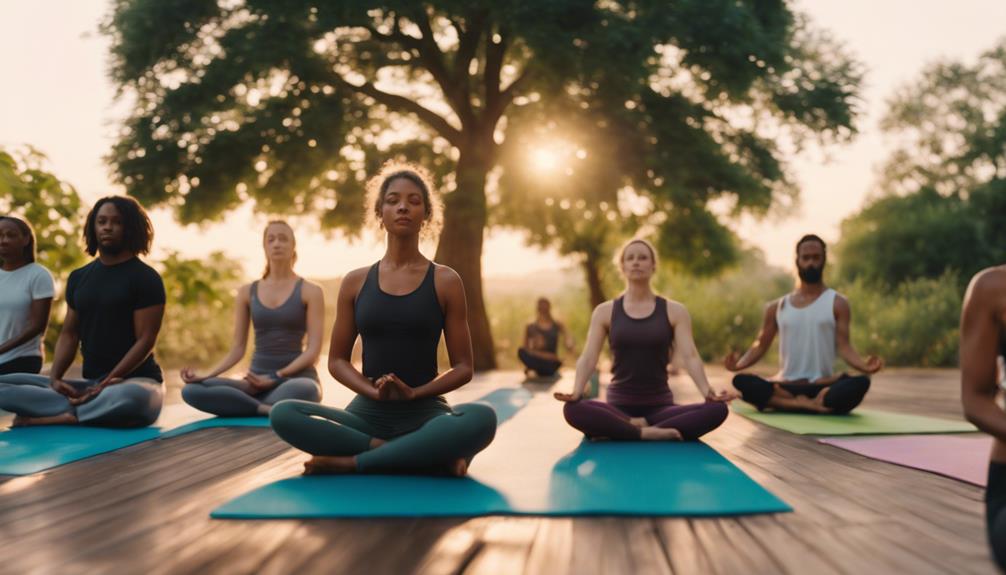Who is the inventor of yoga? This intriguing question invites us to explore the rich tapestry of history, philosophy, and spirituality woven into the practice of yoga. From its ancient beginnings to its modern interpretations, yoga has captivated millions around the globe. In this article, we will unravel the origins of yoga and highlight the figures who contributed to its evolution into the blissful art form we know today.
Unraveling Yoga’s Origins: Who Invented This Blissful Art?
The origins of yoga are steeped in mystery and date back thousands of years, primarily tracing its roots to ancient India. While it’s difficult to pinpoint a single "inventor" of yoga, the practice is believed to have emerged around 3000 BCE, alongside the early Indus Valley civilization. The ancient texts, particularly the Vedas, contain references to meditative practices and rituals that showcase the initial forms of yoga. Over centuries, these practices evolved, leading to the diverse styles of yoga we see today.
Around 200 CE, the sage Patanjali emerged as a pivotal figure in yoga’s development. He compiled the "Yoga Sutras," a foundational text that codified the principles and philosophies of yoga. Through his work, Patanjali not only defined yoga but also provided a framework that helped practitioners understand the mind-body connection. Thus, while he may not be the direct inventor of yoga, Patanjali’s influence undoubtedly shaped its course and solidified its significance in spiritual practices.
Another key contributor to yoga’s evolution is the Upanishads, ancient scriptures that delve into meditation, self-awareness, and the nature of reality. These texts laid the groundwork for later philosophical inquiries, drawing connections between the self (Atman) and the universal spirit (Brahman). By exploring these themes, the Upanishads contributed to the rich philosophical background of yoga, making it a holistic discipline that encompasses the physical, mental, and spiritual dimensions of life.
Meet the Mastermind: The Creator Behind Yoga’s Magic!
As we delve into the question of who is the inventor of yoga, it becomes evident that the practice is not the work of a single individual but rather a collective evolution of many wise sages and teachers over millennia. One of the most noteworthy figures is Swami Vivekananda, who played a crucial role in bringing yoga to the West during the late 19th century. His lectures and writings on yoga introduced Western audiences to the profound philosophical underpinnings of the discipline, inspiring countless individuals to explore its benefits.
In addition to Vivekananda, B.K.S. Iyengar is another significant name in the realm of modern yoga. He was a pioneer in the popularization of Hatha Yoga and developed Iyengar Yoga, which emphasizes precise alignment and the use of props. His teachings have touched millions of lives, making yoga accessible to practitioners of all ages and abilities. Iyengar’s contributions have helped shape contemporary yoga, demonstrating that while the core principles may be ancient, their application can adapt to modern needs.
Lastly, we cannot overlook the influence of T. Krishnamacharya, often regarded as the father of modern yoga. He is celebrated for reviving and systematizing various yoga practices, creating a bridge between classical yoga and the contemporary forms we practice today. His teachings laid the foundation for many well-known styles, including Ashtanga and Vinyasa, which emphasize movement and breath. Therefore, the question of who is the inventor of yoga leads us to a rich lineage of masters whose wisdom continues to inspire yoga practitioners around the world.
In conclusion, the question of who invented yoga reveals a fascinating journey through time, with contributions from numerous sages and philosophers. From the ancient texts of the Vedas to the teachings of modern masters like Vivekananda, Iyengar, and Krishnamacharya, yoga is a living tradition that embodies the shared wisdom of many. Whether you’re a seasoned yogi or a curious newcomer, understanding the roots of yoga enriches your practice and deepens your connection to this beautiful art. So, step onto your mat and embrace the legacy of those who came before you!
